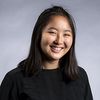Seattle’s Lake City is now home to 120 apartments that local nonprofit leaders hope will become a permanent place to stay for many Native American and Alaska Native people experiencing chronic homelessness in the region — as well as a space, inspired by its name, that encourages all-encompassing healing.
The five-story Sacred Medicine House, which celebrated its grand opening this month, is the fourth and largest permanent residential property that Chief Seattle Club has built since it started establishing housing sites in 2019. Its opening brings the 54-year-old organization another step closer to its goal of effectively ending homelessness for Native people in urban King County, starting with single adults experiencing chronic homelessness.
“The idea is to bring community love and support and services to our members who have struggled the most, in particular with mental health, behavioral health and chronic homelessness,” Lindsay Goes Behind, Chief Seattle Club’s chief program officer, said last week. In the fall, the organization announced its aim to bring about 1,000 permanent housing units to the county by 2030 to hit “functional zero” homelessness among urban Native residents, a figure Chief Seattle Club came to after analyzing years of homelessness data.
“We’re on that pace and we’re not going to slow down until we get there,” Goes Behind said.
The apartment building at 14315 Lake City Way N.E. will be open to single adults and adult couples — but not families with kids — who are expected to move in early to mid-May, said Derrick Belgarde, executive director of Chief Seattle Club.
According to the nonprofit, Sacred Medicine House cost about $47.6 million, with money coming from the Seattle Office of Housing, CVS Health, state affordable housing project grants, a sponsor loan and King County.
Common areas fill the bottom floor of the building, including a kitchen, a lounge and an activity room, in addition to a clinic room for health care providers.
Seattle Indian Health Board, which has a Lake City clinic a mile away, plans to provide some on-site nursing for less complicated injuries and illnesses, like wound care, but will also triage and offer referrals, Goes Behind said.
Like the organization’s other housing sites, Sacred Medicine House will staff a full-time traditional mental health worker who provides a “combination of cultural, spiritual and mental health care and support,” Goes Behind said. Activities and services often include group sessions, ceremonies, arts and crafts, counseling and referrals to outside resources. The center is also in the process of finding a substance-use disorder treatment provider for diagnoses and referrals.
In addition, Chief Seattle Club is — for the first time — offering Wellbriety meetings for those seeking a more traditional approach to 12-Step alcohol- or substance-use recovery programs. Wellbriety was born out of Colorado-based nonprofit White Bison, which provides sobriety, recovery, addiction-prevention and wellness resources to Native American and Alaska Native communities throughout the country.
“Wellbriety focuses on the particular uniqueness of our community and what people are carrying with them — historical trauma, intergenerational trauma, impacts of colonization, residential schools, all those things that have impacted our families for generations,” Goes Behind said.
She and other organization leaders hope they can continue to build out Wellbriety teachings at other Chief Seattle Club sites, she said.
The building will be filled with other types of support, too, including cooking classes, poetry workshops and help applying for jobs and government benefits.
While there’s already a waitlist for applicants, Goes Behind and Belgarde encouraged any Indigenous people seeking community, resources or support to come by the organization’s Pioneer Square day center, which provides hot meals, laundry, showers, mail services, internet access and more.
In addition to the day center, Chief Seattle Club runs three other permanent supportive housing sites in King County: 80-unit ʔálʔal and 75-unit Salmonberry Lofts, both in Pioneer Square, and 63-unit Goldfinch for elders’ housing in Fremont. Including Sacred Medicine House, Chief Seattle Club has put up nearly 340 permanent units in King County since 2022.
The organization is also in charge of Eagle Village in Sodo and Raven Village in Ballard, two communities of tiny homes that house dozens more. Although Eagle Village’s Sodo location is scheduled to close at the end of May, Chief Seattle Club is actively searching for another site to move the homes to, Goes Behind said.
Welcome Home House offers transitional housing for men recently released from incarceration, and Red Road House provides shelter for women escaping domestic violence.
While Native American and Alaska Native people make up about 2% of King County’s overall population, they account for 9% to 15% of the homeless population, The Seattle Times reported in December.
The organization is on the hunt for another 100 or so units of permanent supportive housing in King County, with the hope it can open another building next year, Goes Behind added.
“We know there’s a lot of, for good reason, mistrust and feeling [Native people] won’t be served properly or respected,” Goes Behind said. “The more we can, as a trusted organization in the community, bring services to our members and say we vouch for these folks coming in … the more response we get.”
Material from The Seattle Times archives was used in this story.

The opinions expressed in reader comments are those of the author only and do not reflect the opinions of The Seattle Times.